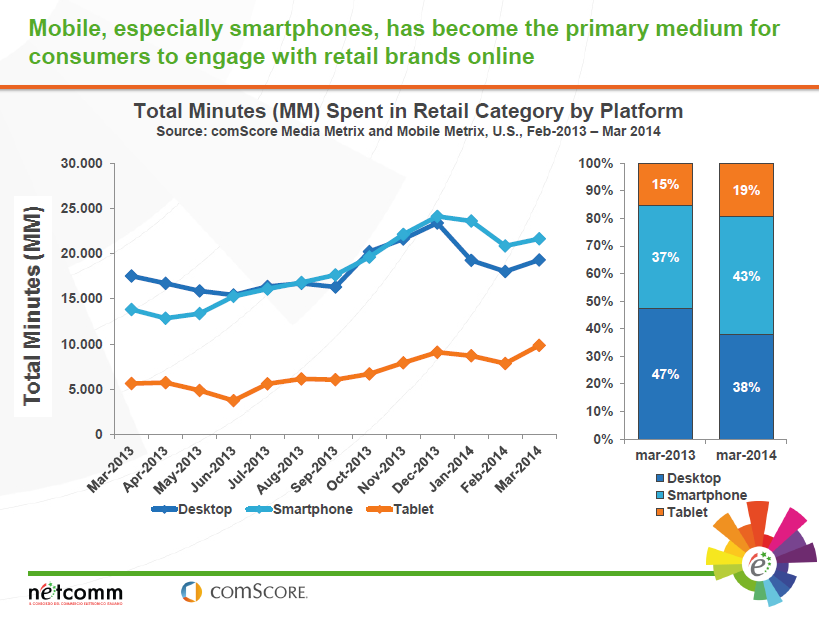Is Mobile Marketing The Future Of E-commerce? A Comprehensive Guide

Table of Contents
The Rise of Mobile Commerce and its Impact on E-commerce Strategies
The increasing dominance of mobile devices in our daily lives has profoundly impacted consumer behavior and, consequently, e-commerce strategies. Businesses that fail to adapt risk being left behind.
Understanding Mobile Consumer Behavior
Mobile shopping habits differ significantly from desktop shopping. Consumers are often more impulsive, exhibiting shorter attention spans and a preference for visually rich content.
- Impulsive Buying: The ease and convenience of mobile purchasing lead to more spontaneous purchases.
- Shorter Attention Spans: Mobile users expect quick and easy navigation; lengthy loading times or complex processes lead to cart abandonment.
- Visual Content Preference: High-quality images and videos are crucial for capturing attention and driving engagement on mobile devices.
Statistics consistently show a surge in mobile usage for both research and purchase. A significant percentage of consumers now begin their product research on their smartphones, comparing prices and reading reviews before making a purchase decision. Mobile apps play a critical role in this process, influencing purchasing decisions through personalized offers and streamlined checkout experiences.
The Shift in Consumer Expectations
Mobile-first consumers expect a seamless and intuitive experience across all touchpoints. This means:
- Seamless Experience: A frictionless transition between browsing, adding to cart, and checkout.
- Fast Loading Times: Slow loading speeds result in high bounce rates and lost sales.
- Mobile Optimization: Websites and apps must be designed specifically for mobile devices, with intuitive navigation and optimized content.
Brands like Amazon and Sephora exemplify success in meeting these expectations, showcasing the importance of a user-centric approach to mobile design and functionality. Conversely, businesses failing to optimize for mobile experience high cart abandonment rates and decreased customer loyalty.
Key Mobile Marketing Strategies for E-commerce Success
To thrive in the mobile-first world, e-commerce businesses need to implement targeted mobile marketing strategies.
Mobile-First Website Design and UX/UI
Responsive design is no longer optional; it's essential. Your website must adapt seamlessly to different screen sizes and devices. Prioritize intuitive navigation, clear call-to-actions, and fast loading speeds. Excellent examples of mobile website design can be found by researching industry leaders in your niche. Focusing on a strong user experience (UX) and user interface (UI) is paramount for mobile success.
Leveraging Mobile Apps for Enhanced Engagement
Mobile apps provide a more engaging and personalized shopping experience.
- Push Notifications: Targeted notifications can remind customers about abandoned carts, offer exclusive deals, and promote new products.
- Loyalty Programs: Reward loyal customers with exclusive discounts and benefits.
- Personalized Offers: Tailor offers based on individual customer preferences and browsing history.
Successful e-commerce apps such as those from Starbucks and Nike demonstrate the power of mobile apps in building customer loyalty and driving sales. However, remember that successful app development and marketing require careful planning and execution.
Harnessing the Power of Mobile Advertising
Mobile advertising offers targeted reach and measurable results.
- In-App Advertising: Reach users within relevant apps.
- Search Ads: Appear at the top of search results on mobile devices.
- Social Media Ads: Leverage the power of social media platforms to reach potential customers.
Effective mobile ad campaigns require careful targeting, compelling ad creative, and continuous optimization. Tracking key metrics such as click-through rates and conversion rates is critical for measuring ROI.
Measuring the Effectiveness of Mobile Marketing Campaigns
Data-driven decision-making is crucial for optimizing your mobile marketing efforts.
Key Metrics for Mobile Marketing Success
Several key performance indicators (KPIs) help you track your progress:
- Click-Through Rates (CTR): Measures the percentage of users who click on your ads.
- Conversion Rates: Measures the percentage of users who complete a desired action (e.g., purchase, sign-up).
- Return on Ad Spend (ROAS): Measures the return on your advertising investment.
Tools such as Google Analytics, Adobe Analytics, and specialized mobile marketing analytics platforms provide valuable data insights.
Adapting Strategies Based on Data Insights
Mobile marketing is an iterative process. A/B testing allows you to experiment with different elements of your campaigns and identify what works best. Use data to refine your targeting, optimize your ad creative, and improve your overall mobile marketing strategy.
The Future is Mobile – Embrace Mobile Marketing for E-commerce Growth
In conclusion, mobile marketing is not just a trend; it’s the cornerstone of future e-commerce success. Ignoring the mobile landscape means missing out on a vast audience and significant revenue opportunities. By focusing on mobile-first design, leveraging mobile apps, and employing effective mobile advertising strategies, you can significantly enhance your e-commerce business. The key benefits include increased customer engagement, improved conversion rates, and enhanced brand loyalty. Ready to take your e-commerce business to the next level? Learn more about effective mobile marketing strategies today!

Featured Posts
-
 Poitiers Accedez A Une Formation Universitaire En Archives
May 19, 2025
Poitiers Accedez A Une Formation Universitaire En Archives
May 19, 2025 -
 Eurovision 2025 A Breitbart Guide To The Top And Bottom Performers
May 19, 2025
Eurovision 2025 A Breitbart Guide To The Top And Bottom Performers
May 19, 2025 -
 Cne Define Fecha Limite Inscripcion De Candidatos Sin Primarias
May 19, 2025
Cne Define Fecha Limite Inscripcion De Candidatos Sin Primarias
May 19, 2025 -
 Is Jordan Bardella The Future Of French Politics
May 19, 2025
Is Jordan Bardella The Future Of French Politics
May 19, 2025 -
 Genc Ve Aile Odakli Trend Nevresim Takimi Secenekleri 2025
May 19, 2025
Genc Ve Aile Odakli Trend Nevresim Takimi Secenekleri 2025
May 19, 2025
Latest Posts
-
 L Tzoymis Kai I Enallaktiki Toy Gia To Kypriako O Dromos Toy Kateynasmoy
May 19, 2025
L Tzoymis Kai I Enallaktiki Toy Gia To Kypriako O Dromos Toy Kateynasmoy
May 19, 2025 -
 To Kypriako Zitima Kateynasmos I Antiparathesi I T Hesi Toy L Tzoymi
May 19, 2025
To Kypriako Zitima Kateynasmos I Antiparathesi I T Hesi Toy L Tzoymi
May 19, 2025 -
 Times Kaysimon Kypros Enimeromenos Odigos
May 19, 2025
Times Kaysimon Kypros Enimeromenos Odigos
May 19, 2025 -
 Kypriako I Simasia Toy Kateynasmoy Enanti Tis Antithesis
May 19, 2025
Kypriako I Simasia Toy Kateynasmoy Enanti Tis Antithesis
May 19, 2025 -
 Anazitisi Gia Fthina Kaysima I Kypros Se Arithmoys
May 19, 2025
Anazitisi Gia Fthina Kaysima I Kypros Se Arithmoys
May 19, 2025
